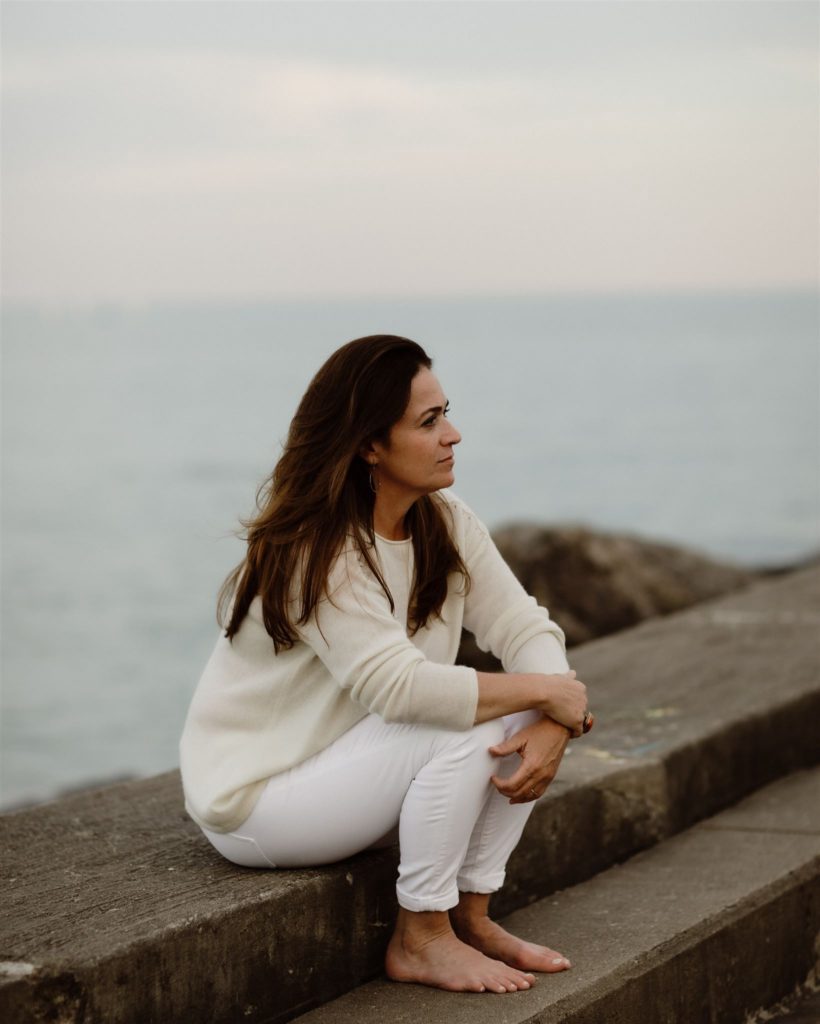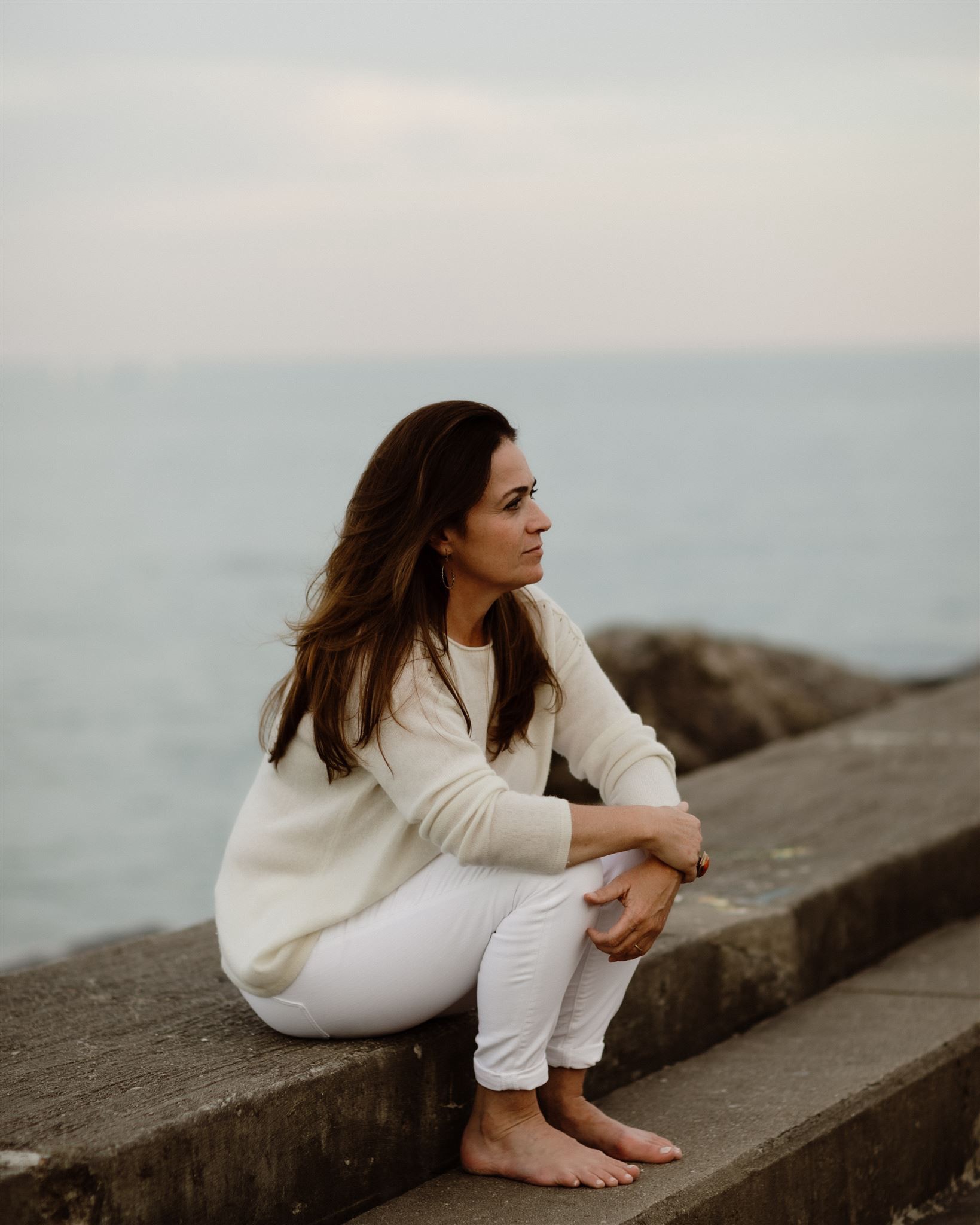The Quiet Crisis Of Women Who Have No Right To Complain

I turned fifty in the middle of my husband’s two-year unemployment. Three of our four kids were in college. Our youngest was in middle school, still in need of braces, algebra tutoring, and sports equipment. Already skint from the economic downturn and a couple of international moves, the unemployment left us financially, mentally, and emotionally drained. But we were able to keep the house. We were lucky.
Around this time, I could no longer rely on my body. I suffered from bouts of searing back pain. My bladder went on strike, demanding a mesh hammock. My female bits decided that they, too, had been overworked and under-appreciated. They wanted attention. From dodgy mammograms, ovarian cysts, random tumors, and a syndrome that, among other unpleasantries, gives me a five o’clock shadow, the stalwart organs that had served me well for decades were now giving me a run for my money (literally). But I didn’t have cancer. I was lucky.
This past year, my husband suffered a heart attack while on business in Mexico. He survived the heart attack but suffered a stroke post-surgery. I stood by his side as he relearned how to swallow and walk and lift a glass. He still can’t smile with both sides of his mouth, talk much above a loud whisper, or button his shirts. He will never know the joy of tossing his grandchildren into the air. But he didn’t die. We are lucky.
With all the stops and starts of tending to others, I struggle to keep my business afloat. In the middle of the night, I stare at the ceiling agonizing over my choices. When do I give up on the dream? Should I call it quits? Isn’t finding a ‘real job’ the most responsible thing to do? But if I quit, what am I modeling for my children? Could I live with the grief of giving up a business I birthed and loved heart and soul for over a decade?
What if mine is to become the success story women-of-a-certain-age can’t get enough of? The story that clutches our throat, wets our eyes and has us slow clapping as the background music swells, crying out, ‘Way to go, Paula, way to go!’; the success story where the heroine refuses to surrender despite circumstances, obstacles, age spots, and those weird grey hairs that grow overnight on her forehead. Can I give up on my dream?
The truth is, wrestling the decision to utilize my innate gifts or get a 9–5 job shames me. It is the problem of a privileged woman who lives in a safe, leafy suburb, who has an education and health insurance. I am lucky.
My parents, both in their mid-80’s, have faced challenges. But we are lucky. They are still sharp as tacks. Across the pond, cancer took the life of our best friend. He was much too young to die. But we are lucky. We were able to say goodbye. Our marriage is strained as we navigate new normals after my husband’s stroke. But we are lucky. We still like each other. We walk an emotional tightrope parenting wildly different and independent kids. But we are lucky. They are good kids. My face is ashen, my eyes bloodshot, and I’m thick in the middle. But I’m lucky. I don’t look ‘too’ old.
There is a crisis of women who silently endure grief, exhaustion, fear, anxiety, disappointment, panic, caregiving, menopause, and sleepless nights. Our lives look too good from the outside. We have no right to complain.
When you are depleted from code red, high-alert parenting or changing your parent’s diapers or you are one ‘check engine’ light away from losing your house, running into an acquaintance is horrifying.
Answering the innocuous question, ‘How are you?’ is like playing Emotional Breakdown Roulette: Will you lose your shit or will your emotions play nice and stay below the surface? No one wants to ugly cry in CVS holding a plastic basket full of Cheetos, lube, scotch tape, lipstick, and wrinkle cream. Better to deep dig, pray for strength, smile, talk about how lucky you are, and change the subject.
Women share heartbreaking tragedies bracketed in gratitude so they don’t come across as complaining. We don’t want to be judged for complaining. We have a beautiful home and a nice car; that should be enough to keep us happy. No one likes a whiner.
‘I lost my job after fifteen years with the company. But I’m lucky. I got a severance package.’ ‘My brother is suing me for guardianship of my mother so he can put her in a home and sell the house. But I’m lucky. I have good friends to lean on.’ ‘I’m not sure I’ll ever get over the death of my daughter. But I’m lucky. I’ve poured myself into her foundation.’ ‘Between caregiving for both my parents with Alzheimer’s and getting my daughter into rehab, I hardly have a moment to myself. But I’m lucky. My boss hasn’t fired me.’
From the outside, no one, including the ones closest to us, may notice anything is off. Women often fit heartbreak, fear, panic, regret, and anxiety into the soft edges of parenting, entertaining, meetings, caregiving, workouts, dentist appointments, and grocery shopping. We cry in the shower. We wander mindlessly through the aisles of Target. We lie awake at night.
But we don’t complain. Complaining is for people who have real challenges. Not us.
No one told us the tradeoff for granite countertops, stainless steel appliances, and leather seats with butt warmers was silencing our heartbreak, our exhaustion, and our pain.
No one told us the price we’d pay for holiday cards that capture the toothy grins of our happy family would be pretending everything was fine. We didn’t know a beautiful lawn came with the unwritten agreement that we weren’t ever to admit we were ready for a breakdown.
I’m a GenX’er and not just a sorta, kinda GenX’er. I’m a card-carrying, textbook GenX’er. GenX women (born between 1965–1979), like the Baby Boomers before us, were told we could (and should) have it all.
We had more choices than our mothers or grandmothers. We had the pill, we were able to go to college without fanfare. We married for love (for better or worse). We could breast and bottle-fed. We could have careers, stay home, travel, divorce, and, in general, fend for ourselves.
We shared this hazy belief that a woman’s late forties and fifties were the best years of her life. With her kids launched, a woman in her middle age could focus on herself. She could putter and develop interesting hobbies. Unencumbered by society’s obsession with youth, she no longer had to bother with the shape of her bottom or the crepiness of her decolletage. She could rest her pretty head at night, knowing a pension would keep her comfortable until she parted this world. She would likely enjoy years of good health and maybe a trip or two to the Ozarks (or possibly Acapulco, if she had the means) before tending to the needs of her aging parents.
As a generation, we were told that in our midlife, there’d be cake.
Instead, many of us have been served up a heaping serving of ‘What did I do wrong?’
We worry silently about our finances and our parent’s finances, our kids’ depression and anxiety. We worry that our spouse might be ‘slipping’ mentally. We deal with the exhaustion of caregiving and are still actively parenting our kids. Our bodies move and shift and change throughout it all.
We beat ourselves up for working full time. Or for staying home. We should have spoken up more. We should have bitten our tongue. Did we do enough for our kids? Too much? If only we bought stock in Apple when we had the chance…
Our marriages, if we are still married, transition as the nest empties. The quiet house has an energy all of its own. We grieve our parents. Or perhaps we grieve spouses, friends, or, God forbid, children. But public grieving has a shelf life. It makes people feel awkward, so we learn to power through when the waves of grief knock us to the ground.
We all secretly agree that it is ‘best’ for everyone if we button up our middle-class or upper-middle-class selves, smile, and get on with it. What that means is that we’d rather other people feel comfortable than talk about the strong emotions blanketing our souls.
We’d rather be miserable than appear to be ungrateful, unthankful, selfish, self-centered, dissatisfied or discontent with the lovely life we have.
To cope we eat, drink, shop, scroll, exercise, inject, and tighten. We criticize, we have affairs, we cleanse, we go to church, we gulp anti-oxidants, we meditate, we yoga, we vacation, we girls-night-out, we peel, we laser, we cry in the shower, we make lists, and we self-flagellate. We stare endlessly out car windows. We fantasize about disappearing. We compare, we compete, we control. We self-perfect. We keep aspiring to the next unattainable level of ‘wellness’ or self-actualization.
No matter how busy we keep ourselves, we don’t seem to find relief.
One in four middle-aged American women is on anti-depressants. Nearly 60% of GenX’ers are stressed and three in four GenX women are anxious about money. In one study, more than half of the population thought this was the lowest point in our nation’s history. Of the four generations surveyed, GenX’ers were the most distraught.
Depressing as hell, right?
It doesn’t have to be. For all the worry and fear, we are resilient. We don’t give up. Most importantly? This stage won’t last forever.
So what can we do in the meantime?
- Stop saying you’re fine. You don’t have to air your dirty laundry, give away your soul or overshare your details, but it is okay to say, ‘This sucks’ or ‘I wonder where I’m going to find the strength each morning’. I feel a rush of closeness when a woman shares her truths with me. It’s like a secret handshake. ‘You, too? I thought it was just me!’ are some of the sweetest words in the English language. There is a sisterhood out there. Speak your truth.
- Stop with the self-perfection, already. The truth is working harder, looking better, being fitter, and doing more isn’t going to solve your problems. We grind away at the gym, we feel like failures if we eat carbs, and we judge ourselves if our closets are cluttered. When did self-denial become proof of worthiness? Don’t fool yourself. Denying yourself a nap or food or laughter isn’t going to make you happier or a better woman. The women who have most inspired me with their resiliency, grace, and humor; the women who loved deeply and unconditionally, were not MILFs in their middle age. I’d rather be an inspiration and someone’s example of unconditional love than look great in a bikini.
- Connect with other women.For real. Connect in person, not just virtually. Join the book club, call your friends, go for walks, create a stitch and bitch or a Pug Appreciation Club. Join a political campaign. Think you don’t have the time or energy for one more thing? Connection is worthwhile. It will save your soul. I’m serious. Create any reason in the world to connect. Stick to it.
- Have some fun. We’ve come this far, would it kill us to make adulthood a little more fun? Years ago, close friends were going through a desperately difficult time. One night, we decided to take a break from the tears. We closed the blinds, turned up the music, and danced our asses off. The grief was waiting for us in the morning, but singing and dancing for a night was like medicine for our souls. There is a lot to be said for reminding yourself there is still joy to be had. You have to look for it. Sometimes, you have to give yourself permission to enjoy it.
- Become a spin doctor. You can control the stories you tell yourself. In my case, I can focus on the fear and frustration around my husband’s stroke or I can marvel at the fact that it brought me closer to friends, family, and even strangers. Choices, no matter dismal, brought you to this moment in time. Reframing your situation can mean the difference between sanity and panic. What can you learn? In what ways has your imperfect life allowed you to evolve into you? How can you spin this situation to make you feel empowered or connected?
This phase of life will end. We will inevitably transition into a different unchartered phase giving us more opportunities to reach out with the secret sisterhood handshake and speak those sweet words of solace, ‘I thought it was just me.’

